Fiction
Fiction

A Map to the Door of No Return: Notes to Belonging
A Map to the Door of No Return is a timely book that explores the relevance and nature of identity and belonging in a culturally diverse and rapidly changing world. It is an insightful, sensitive and poetic book of discovery. Drawing on cartography, travels, narratives of childhood in the Caribbean, journeys across the Canadian landscape, African ancestry, histories, politics, philosophies and literature, Dionne Brand sketches the shifting borders of home and nation, the connection to place in Canada and the world beyond.
The title, A Map to the Door of No Return, refers to both a place in imagination and a point in history — the Middle Passage. The quest for identity and place has profound meaning and resonance in an age of heterogenous identities. In this exquisitely written and thought-provoking new work, Dionne Brand creates a map of her own art.
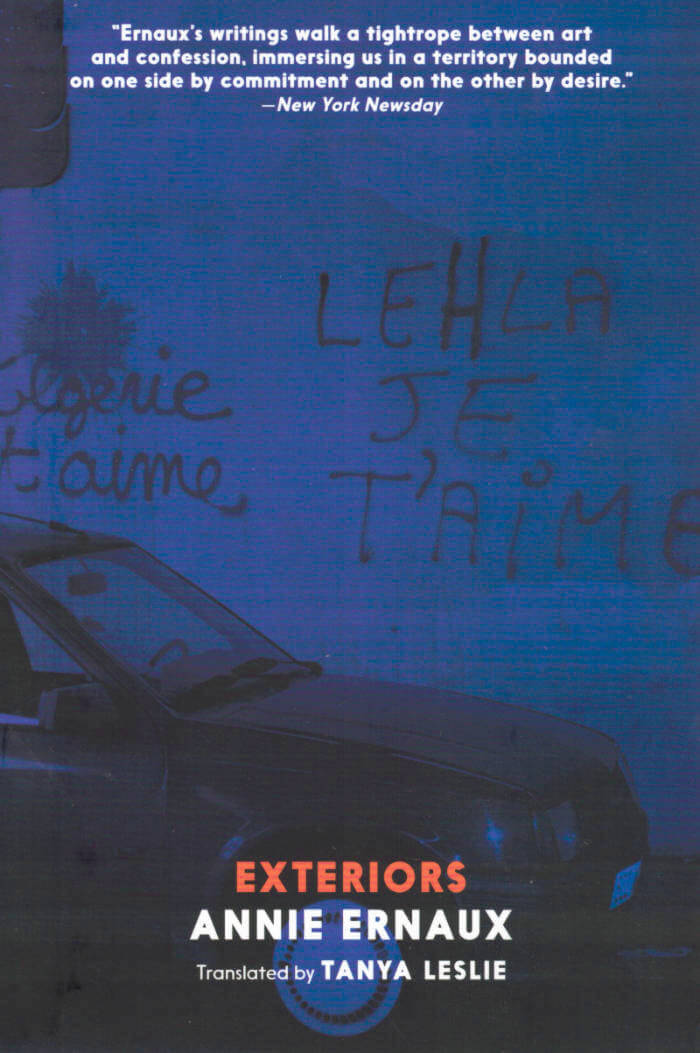
Exteriors
Taking the form of random journal entries over seven years, Exteriors captures the feeling of contemporary living on the outskirts of Paris. Poignantly lyrical, chaotic, and strangely alive.
Born in 1940, ANNIE ERNAUX grew up in Normandy, studied at Rouen University, and began teaching high school. From 1977 to 2000, she was a professor at the Centre National d'Enseignement par Correspondance. Her books, in particular A Man's Place and A Woman's Story, have become contemporary classics in France. She won the prestigious Prix Renaudot for A Man's Place when it was first published in French in 1984. The English edition was a New York Times Notable Book and a finalist for the Los Angeles Times Book Prize. The English edition of A Woman's Story was a New York Times Notable Book.
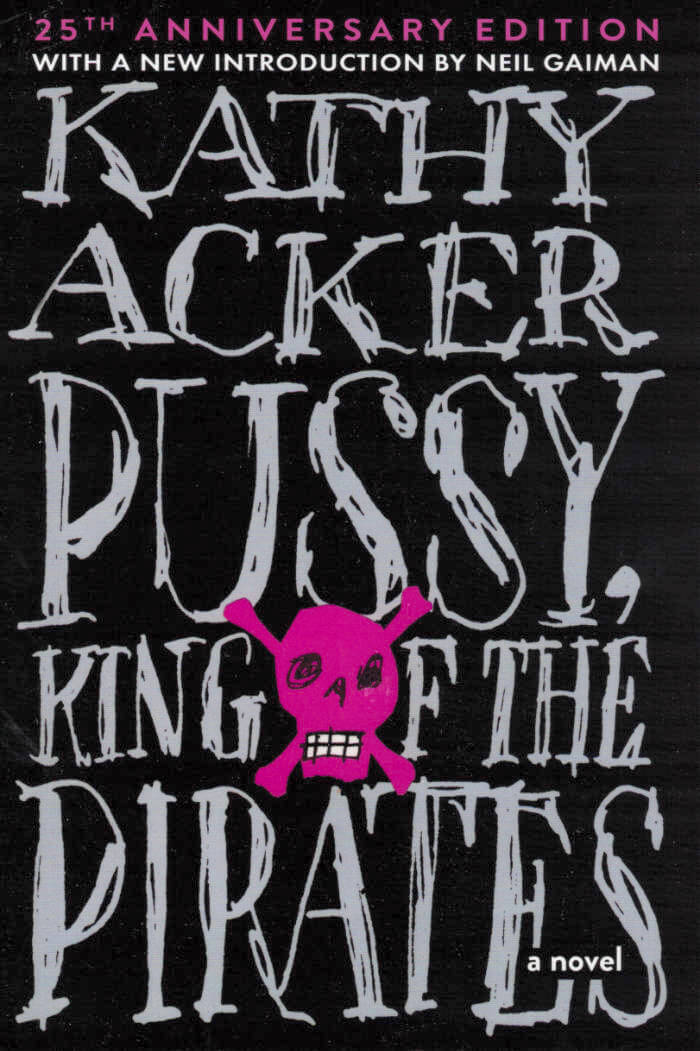
Pussy, King of the Pirates
Loosely related to Robert Louis Stevenson's classic Treasure Island, Pussy, King of the Pirates is a grrrl pirate story that journeys from the most famous whorehouse in Alexandria through an unidentified, crumbling city that may or may not be sometime in the future, to Brighton Town, England, and, finally, to a ship headed toward Pirate Island, where the stories converge and the vision ends.
Ransacking world history, literature, and language itself to speak to the current zeitgeist, Pussy, King of the Pirates is the literary analogue to the wild girl energy that dominates our rock and roll culture in the 1990s. A daring and passionate litany of disparate narratives and voices, poetry and prose, words and images, Kathy Acker's newest novel is perhaps her most subversive to date. Her meditations on love, sex, death, and art have made her a writer like no one else working today.

Zami: A New Spelling of My Name: A Biomythography
Zami: A New Spelling of My Name is a 1982 autobiography by African-American poet Audre Lorde. It started a new genre that the author calls biomythography, which combines history, biography, and myth. In the text, Lorde writes that "Zami" is "a Carriacou name for women who work together as friends and lovers," Carriacou being the Caribbean island from which her mother immigrated.

The Employees: A Workplace Novel of the 22nd Century
Funny and doom-drenched, The Employees chronicles the fate of the Six-Thousand Ship. The human and humanoid crew members complain about their daily tasks in a series of staff reports and memos. When the ship takes on a number of strange objects from the planet New Discovery, the crew becomes strangely and deeply attached to them, even as tensions boil toward mutiny, especially among the humanoids. Olga Ravn's prose is chilling, crackling, exhilarating, and foreboding. The Employees probes into what makes us human, while delivering a hilariously stinging critique of life governed by the logic of productivity.
Olga Ravn (born 1986) is a Danish novelist and poet. Her debut poetry collection I Devour Myself Like Heather appeared to critical acclaim in 2012. Alongside Johanne Lykke Holm she ran the feminist performance group and writing school Hekseskolen from 2015 to 2019. In collaboration with Danish publisher Gyldendal she edited a selection of Tove Ditlevsen's texts and books that relaunched Ditlevsen readership worldwide.
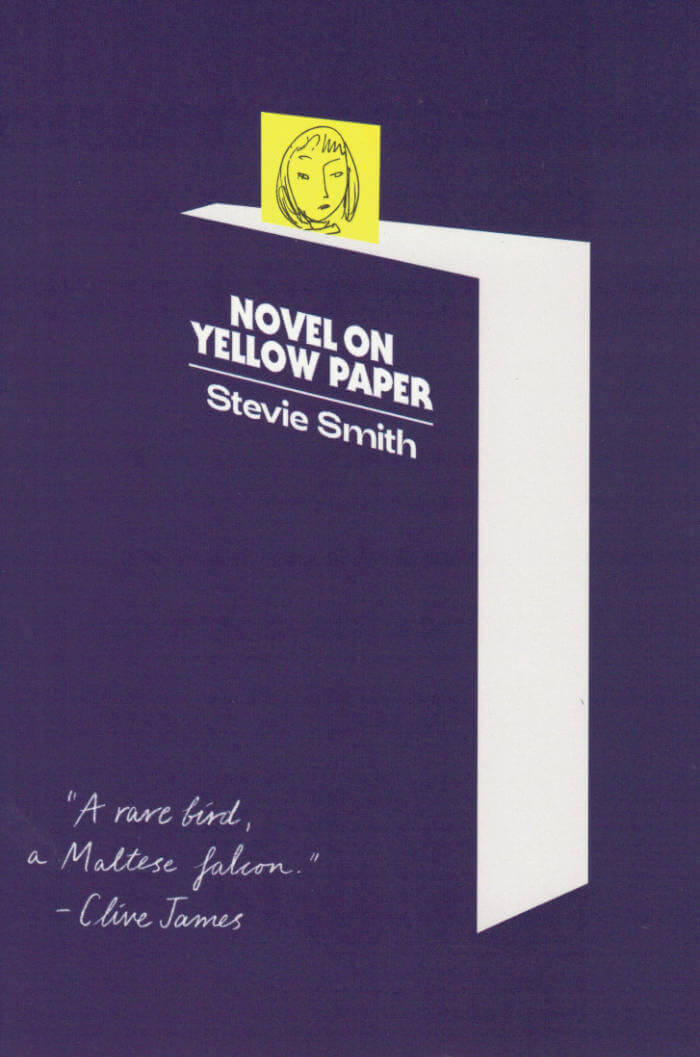
Novel On Yellow Paper
I am a forward-thinking girl, and don’t stay where I am. ‘Left right, be bright.’
Pompey Casmilus, Stevie Smith’s loquacious alter ego, works as a secretary and writes down on yellow office paper this wickedly amusing novel. “Dear Reader,” she addresses us politely in the whirlwind of her opinions on death, sex, anti-Semitism, art, Greek tragedy, friendship, marriage, Nazism, gossip, and the suburbs. But most of all Pompey talks about love.
When Smith first tried to get her poems published in 1935, she was told by a publisher to “go away and write a novel.” Novel on Yellow Paper, the happy result of this advice, made its author an instant celebrity and was acclaimed as “a curious, amusing, provocative and very serious piece of work” (The London Times Literary Supplement, 1936).
Published 1936, 2022
Stevie Smith (20 September 1902 – 7 March 1971), was an English poet and novelist.
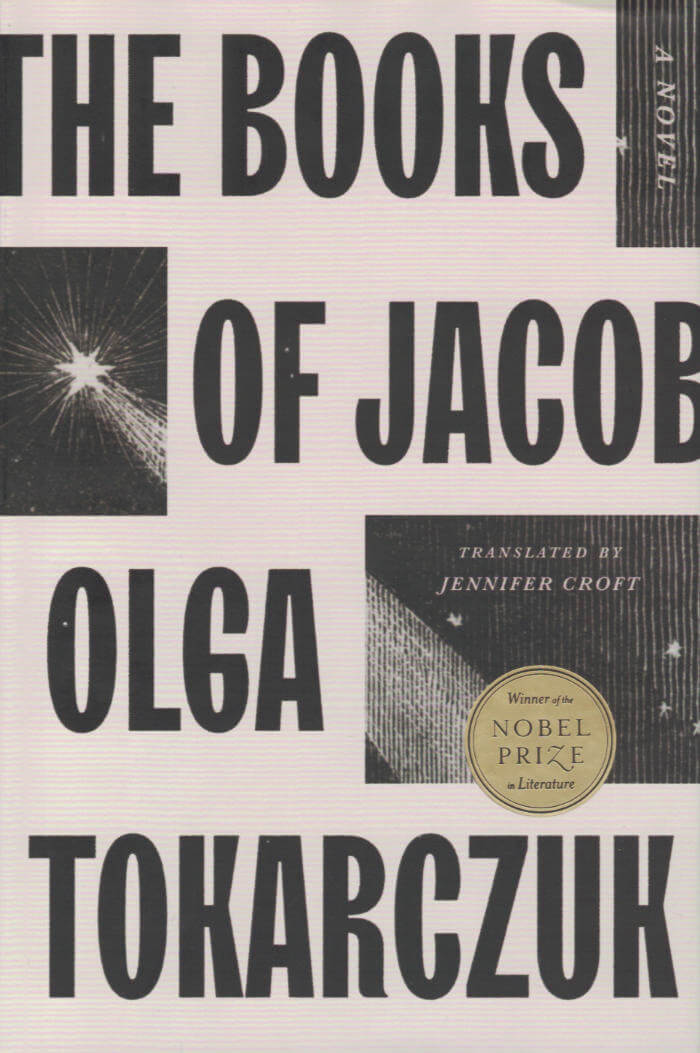
The Books Of Jacob
In the mid-eighteenth century, as new ideas, and a new unrest, begin to sweep the Continent, a young Jew of mysterious origins arrives in a village in Poland. Before long, he has changed not only his name but his persona; visited by what seem to be ecstatic experiences, Jacob Frank casts a charismatic spell that attracts an increasingly fervent following. In the decade to come, Frank will traverse the Hapsburg and Ottoman empires with throngs of disciples in his thrall as he reinvents himself again and again, converts to Islam and then Catholicism, is pilloried as a heretic and revered as the Messiah, and wreaks havoc on the conventional order, Jewish and Christian alike, with scandalous rumors of his sect's secret rituals and the spread of his increasingly iconoclastic beliefs. The story of Frank, a real historical figure around whom mystery and controversy swirl to this day, is the perfect canvas for the genius and unparalleled reach of Olga Tokarczuk. Narrated through the perspectives of his contemporaries, those who revere him, those who revile him, the friend who betrays him, the lone woman who sees him for what he is— The Books of Jacob captures a world on the cusp of precipitous change, searching for certainty and longing for transcendence.
In a nod to books written in Hebrew, The Books of Jacob is paginated in reverse, beginning on p. 955 and ending on p. 1 - but read traditionally, front cover to back.

The Well-Dressed Wound
A gleeful grotesquerie and savage satire, featuring Abraham and Mary Todd Lincoln and the Devil, along with Civil War dead, deconstructed couture, and gay ghosts.
The Well-Dressed Wound is Derek McCormack's play script "séance" a fashion show by the dead for the living. In the depths of the Civil War, in a theater in P. T. Barnum's American Museum on Broadway, Abraham and Mary Todd Lincoln participate in a staged spiritualistic rite. But the medium conducting them has invited along another being: the Devil, disguised as twentieth-century French fashionista Martin Margiela (aka "King Faggot"). What follows is the most fiendish runway show ever mounted, complete with war dead, deconstructed couture, and gay ghosts infected with all manner of infectious agents, including oozy AIDS.
While his previous fictions have explored the darker corners of country music, high fashion, and camp, The Well-Dressed Wound is McCormack's most radical work yet, occultishly evoking the evil-twin muses of transgressive literature, Kathy Acker and Pierre Guyotat. The creation thus conjured is a gleeful grotesquerie, a savage satire not so much of fashion as of death, a work that, as Bruce Hainley observes in Artforum, puts "the 'pus' back in opus." Here death and life spin on a viral double helix of contamination and couture, blistering and bandages, history and hysteria, semen and seams. "Being dead is so very now," Hainley opines. "This tiny tome (a time bomb, a tomb) is to die for and radically alive."

Mauve Desert
First published in 1987, Nicole Brossard's classic novel returns to Coach House in a new edition. A seminal text in Canadian and feminist literature, Mauve Desert is a must-read for readers and writers alike.
This is both a single novel and three separate novels in one. In the first, Mauve Desert, fifteen-year-old Mélanie drives across the Arizona desert in a white Meteor chasing fear and desire, cutting loose from her mother and her mother's lover, Lorna, in their roadside Mauve Motel. In the second book, Maudes Laures reads Mauve Desert, becomes obsessed with it, and embarks on an extraordinary quest for its mysterious author, characters and meaning. The third book - Mauve, the horizon - is Laures's eventual translation of Mauve Desert. Like all good translations, it is both the same and revealingly different from the original.
Nicole Brossard's writing is agile and inventive; from moment to moment gripping, exhilarating and erotic. Her language drifts and swells like sand dunes in a desert, cresting and accumulating into a landscape that shifts like wind and words; she translates the practice of translation, the pulse of desire.
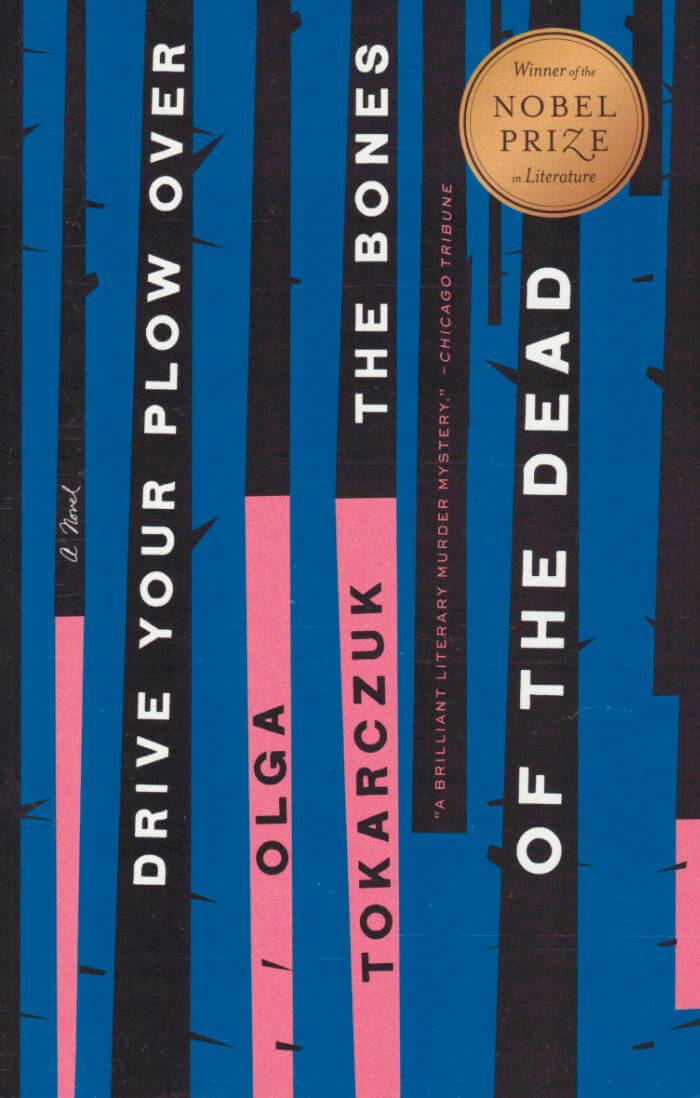
Drive Your Plow Over the Bones of the Dead
In a remote Polish village, Janina devotes the dark winter days to studying astrology, translating the poetry of William Blake, and taking care of the summer homes of wealthy Warsaw residents. Her reputation as a crank and a recluse is amplified by her not-so-secret preference for the company of animals over humans. Then a neighbor, Big Foot, turns up dead. Soon other bodies are discovered, in increasingly strange circumstances. As suspicions mount, Janina inserts herself into the investigation, certain that she knows whodunit. If only anyone would pay her mind...
Olga Tokarczuk has won the Nobel Prize in Literature and the Man Book International Prize, among many other honors. She is the author of a dozen works of fiction, two collections of essays, and a children's book; her work has been translated into fifty languages.
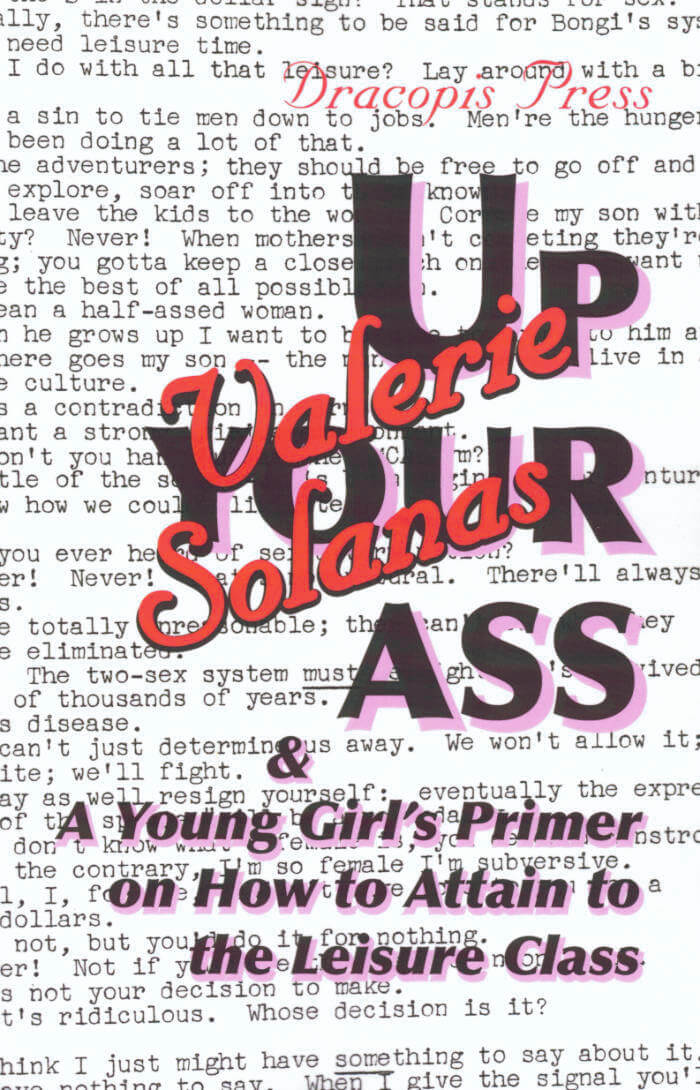
Up Your Ass; And a Young Girl's Primer on How to Attain to the Leisure Class
"I'm so female I'm subversive." Valerie Solanas.
This volume presents two rarities of Valerie Solanas. The legendary play "Up Your Ass, or, From the Cradle to the Boat, or, The Big Suck, or, Up From the Slime" (1965/1967). And the story "A Young Girl's Primer on How to Attain to the Leisure Class" (1966).
Readers of SCUM Manifesto! Behold as the literary heritage of Valerie Solanas redoubles before your eyes.

American Genius, A Comedy
Grand and minute, elegiac and hilarious, Lynne Tillman expands the possibilities of the American novel in this dazzling read about a former historian ruminating on her own life and the lives of others—named a best book of the century by Vulture.
In the hypnotic, masterful American Genius, A Comedy, a former historian spending time in a residential home, mental institute, artist's colony, or sanitarium, is spinning tales of her life and ruminating on her many and varied preoccupations: chair design, textiles, pet deaths, family trauma, a lost brother, the Manson family, the Zulu alphabet, loneliness, memory, and sensitive skin—and what "sensitivity" means in our culture and society.
Showing what might happen if Jane Austen were writing in 21st-century America, Tillman fashions a microcosm of American democracy: a scholarly colony functioning like Melville's Pequod. All this is folded into the narrator's memories and emotional life, culminating in a seance that may offer escape and transcendence—or perhaps nothing at all. This new edition of a contemporary classic features an introduction by novelist Lucy Ives.
Lynne Tillman is a novelist, short story writer, and cultural critic. Her novels are Haunted Houses; Motion Sickness; Cast in Doubt; No Lease on Life, a finalist for the National Book Critics Circle Award; American Genius, A Comedy; and Men and Apparitions. Her nonfiction books include The Velvet Years: Warhol's Factory 1965-1967, with photographs by Stephen Shore; Bookstore: The Life and Times of Jeannette Watson and Books & Co.; and What Would Lynne Tillman Do?, a finalist for the National Book Critics Circle Award in Criticism. Her most recent short story collections are Someday This Will Be Funny and The Complete Madame Realism. She is the recipient of a Guggenheim Foundation Fellowship and an Andy Warhol/Creative Capital Arts Writing Fellowship. Tillman is Professor/Writer-in-Residence in the Department of English at The University of Albany and teaches at the School of Visual Arts' Art Criticism and Writing MFA Program in New York. She lives in Manhattan with bass player David Hofstra.
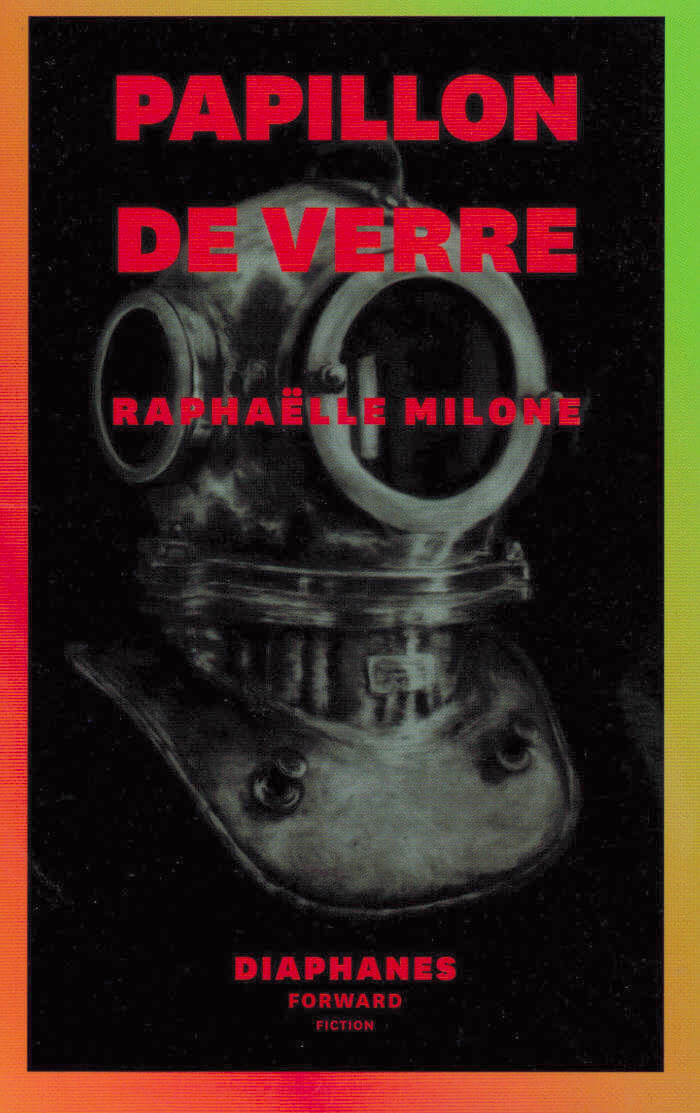
Papillon de verre
Raphaëlle Milone's first novel, a dive into the heart of desires, acclaimed by Simon Liberati as well as by Jean-Luc Nancy.
Raphaëlle Milone (born 1991 in Riom) is a French writer.
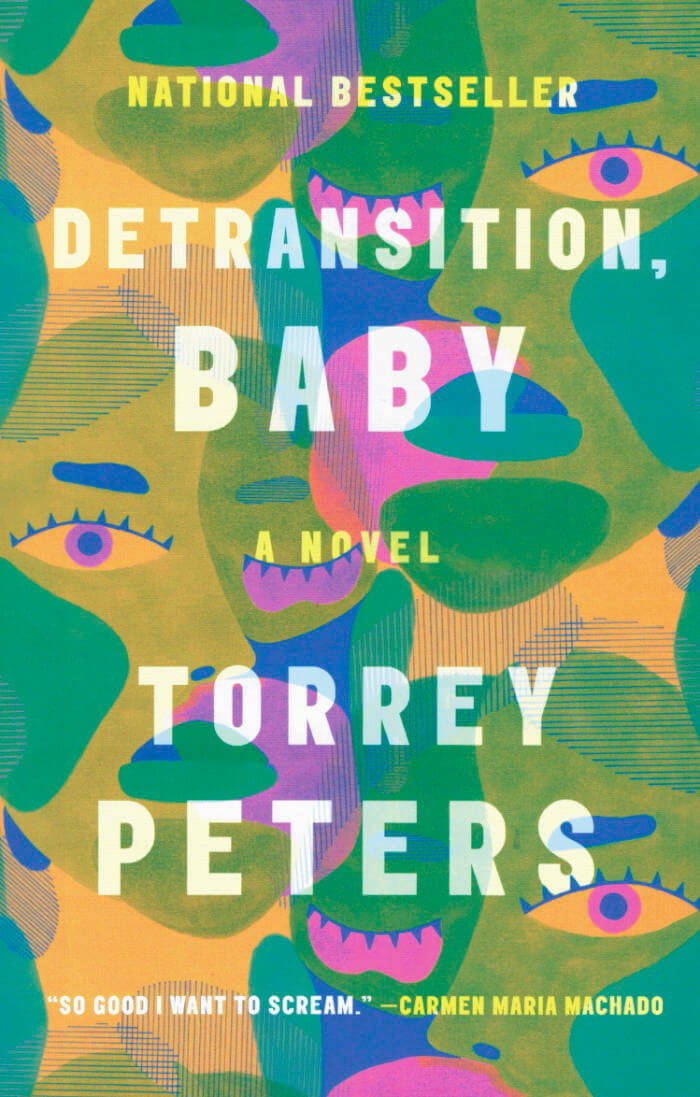
Detransition, Baby (paperback)
A whipsmart debut about three women — transgender and cisgender — whose lives collide after an unexpected pregnancy forces them to confront their deepest desires around gender, motherhood, and sex.
Torrey Peters is the author of the novellas Infect Your Friends and Loved Ones and The Masker, which are available for free on her website. She holds an MFA from the University of Iowa and an MA in Comparative Literature from Dartmouth. She grew up in Chicago and now lives in Brooklyn.
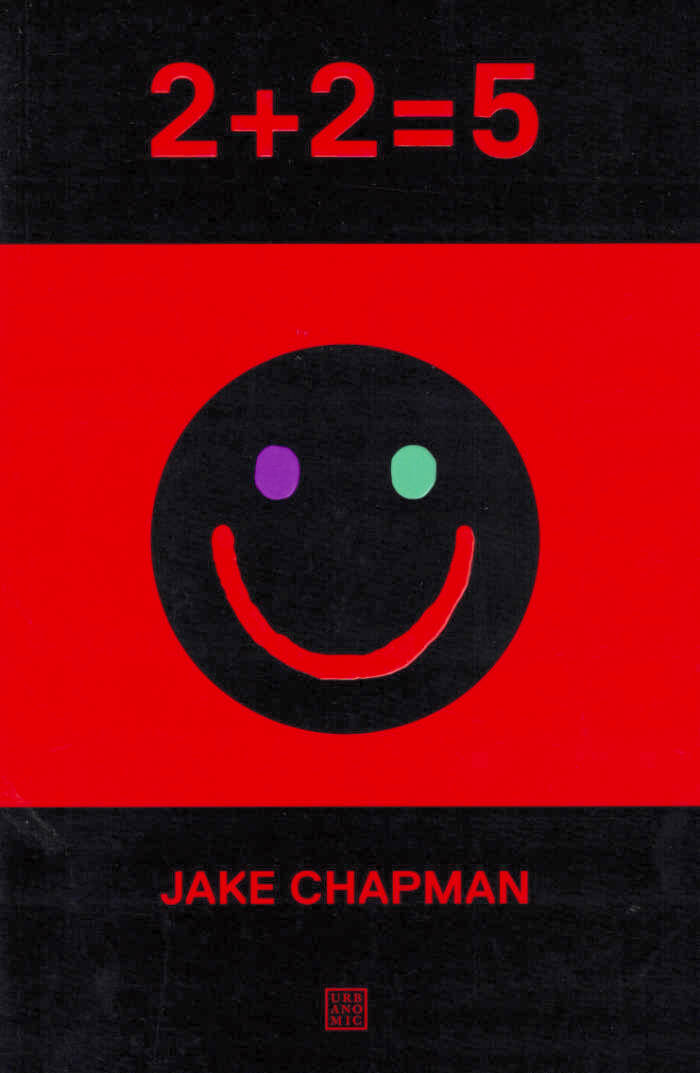
2+2=5
With 2+2=5, George Orwell's flawed masterpiece finally receives a much-needed rectification, as Jake Chapman takes us on a bad trip into an atrocious alt-Eurasia - a nightmare utopia of 24/7 self-expression, mandatory wellbeing, yogic breathing, and promiscuous empathy. Yippie wonks in open-toed sandals have ejected the evil capitalist overlords, compassion and charity reign supreme, buckwheat salad and artisan cashew cheese are in plentiful supply, and all strive to live their best life, all the time.
Employed by the Ministry to rectify misfortunes issuing from a curious glitch in the system, Winston Smith finds that his creative urges are unexpectedly awoken, and he is driven to express his deepest place, voice, and hurt through the medium of poetry. But what connects Winston's furtive scribblings in My Big Book of Me to the unpleasantnesses emanating from the deep glitch? Is Julia really the perfect kooky carefree soulmate she seems to be? Can O'Brien be trusted? And when does the new season of Big Brother start?
An all-you-can-eat quinoa buffet of wrongthink, Chapman's twisted vision is a bracing reminder that dystopia is just wishful thinking, and that the worst can always get worster.
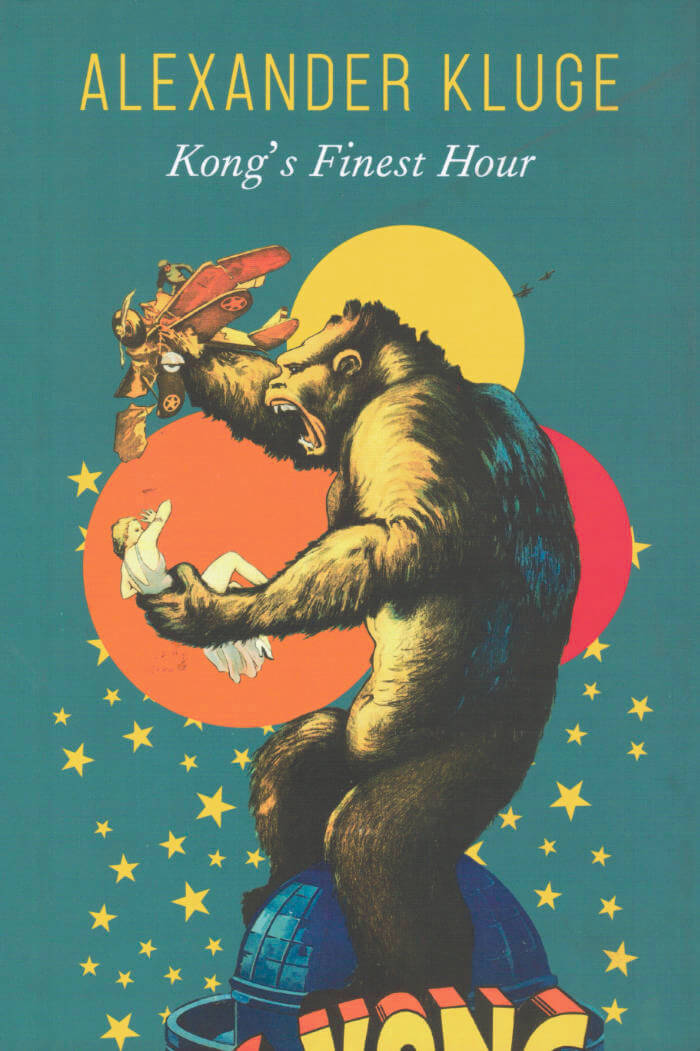
Kong's Finest Hour: A Chronicle of Connections
In a world full of devils, the giant ape Kong defends what he loves the most. But who and what is this undomesticated animal? Might it reside within us? As we tread confidently, is this where the earth opens up beneath us?
In Kong's Finest Hour, Alexander Kluge explores anew the accessible spaces where Kong dwells within us and in our million-year-old past. The more than two hundred stories contained in this volume form a chronicle of connections that together survey these spaces using diverse perspectives. These include stories about the folds of Kong's nose, the voice of the author's mother, the poet Heinrich von Kleist and Jack the Ripper, the indestructability of the political, and the supercontinent Pangaea that once unified the earth. Dissolving theory into storytelling has been Kluge's lifelong pursuit, and this magnificent collection tells stories of people as well of things.
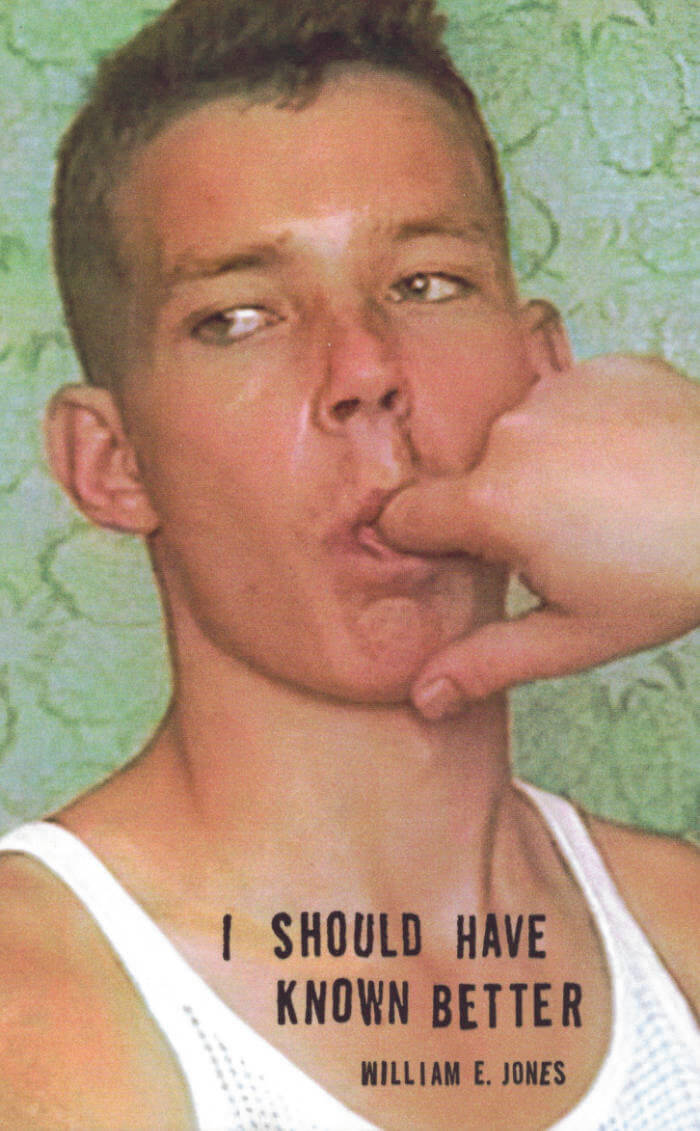
I Should Have Known Better
I Should Have Known Better is a sequel to the sleeper hit I'm Open to Anything (2019), expanding the original's scope and ambition.
I Should Have Known Better's first person narrator, while working at a dead-end job in Los Angeles during the mid-1990s, reconnects with his best friend Moira, recently returned from Central America, and makes a new friend, Bernie, who teaches the history of photography. The two of them convince him to pursue a master's degree as a way of escaping the unrewarding life of a video store clerk. Once the narrator is exposed to an academic environment, he takes a dim view of the education that art school has to offer, but is happy to meet a group of talented fellow students who become close friends. He encounters a number of art world figures, ranging from the brilliant to the abject, who disabuse him of his illusions. The narrator has his most instructive experiences off campus, especially a love affair with the handsome and mercurial Temo, an insolent rich kid who leads a double life. Together they explore their sexual limits in scenes of bracing explicitness. I Should Have Known Better bears witness to the last gasp of Los Angeles bohemia at the end of the twentieth century.
The novel paints precise portraits of inspired eccentrics devoted to pursuing their dreams, "shopping artists" who believe in nothing but hedonism, and latter-day leftists who find themselves directionless after the fall of communism. Above all, the book pays tribute to the impulsive experiments and intense friendships of youth.
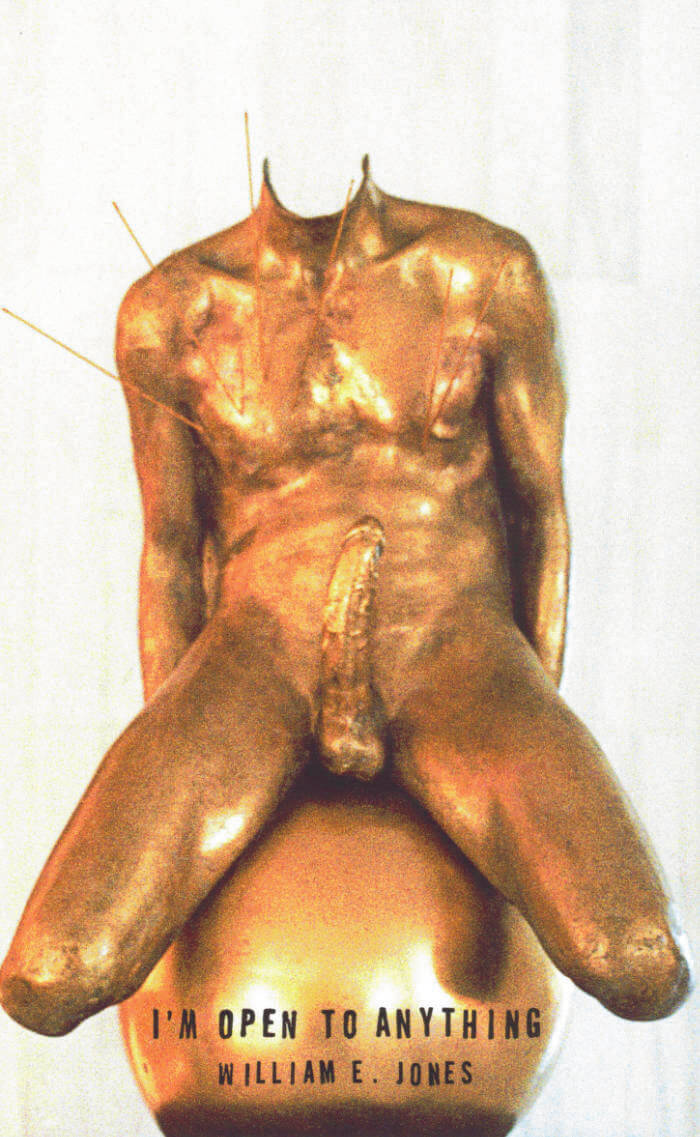
I'm Open To Anything
A perverse and explicit new take on the coming of age novel, William E. Jones's I'm Open to Anything explores bohemian Southern California of the late 1980s and early 90s, before gentrification ruined everything.
The book's narrator flees a crumbling industrial wasteland in the Midwest and finds himself in sunny Los Angeles without a car, working in a neighborhood video store and spending many hours watching films. He explores his adopted city and befriends a number of men, most of them immigrants, who teach him the finer points of sex. He acquires the skill of fisting, giving his partners intense pleasure, and at the same time hearing the stories of their lives. They too have fled their hometowns: one to escape torture at the hands of a Salvadoran death squad; another to study anthropology after years of wandering and religious questioning.
Alternating between explicit scenes of kinky sex and intimate conversations about matters of life and death, I'm Open to Anything is a porno novel of rare ambition and humor. The book recalls Olympia Press's heyday, when authors made quick money churning out dirty books, but couldn't hide the intellectual obsessions that made them writers in the first place.
William E. Jones's previous book, True Homosexual Experiences (also published by We Heard You Like Books), a biography of Straight to Hell's iconoclastic editor Boyd McDonald, celebrates the frank, raunchy language of the first queer 'zine. Jones brings the same unsparing and profane attitude to I'm Open to Anything, his debut novel.
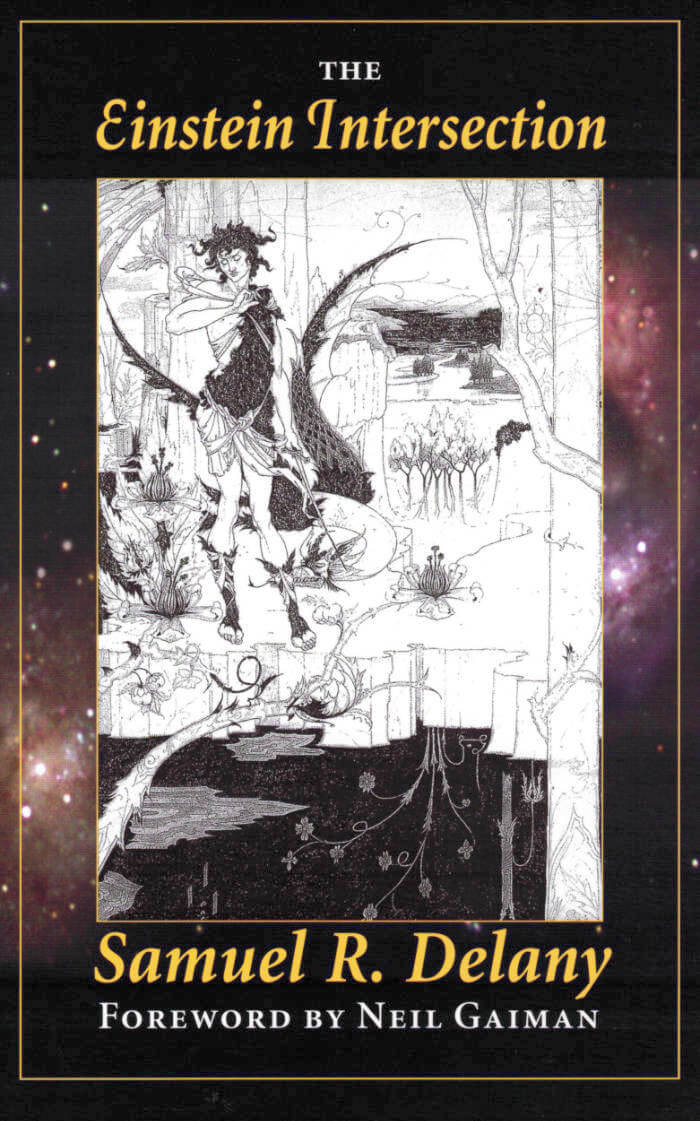
The Einstein Intersection
A nonhuman race reimagines human mythology.
The Einstein Intersection won the Nebula Award for best science fiction novel of 1967. The surface story tells of the problems a member of an alien race, Lo Lobey, has assimilating the mythology of earth, where his kind have settled among the leftover artifacts of humanity. The deeper tale concerns, however, the way those who are different must deal with the dominant cultural ideology. The tale follows Lobey's mythic quest for his lost love, Friza. In luminous and hallucinated language, it explores what new myths might emerge from the detritus of the human world as those who are different try to seize history and the day.
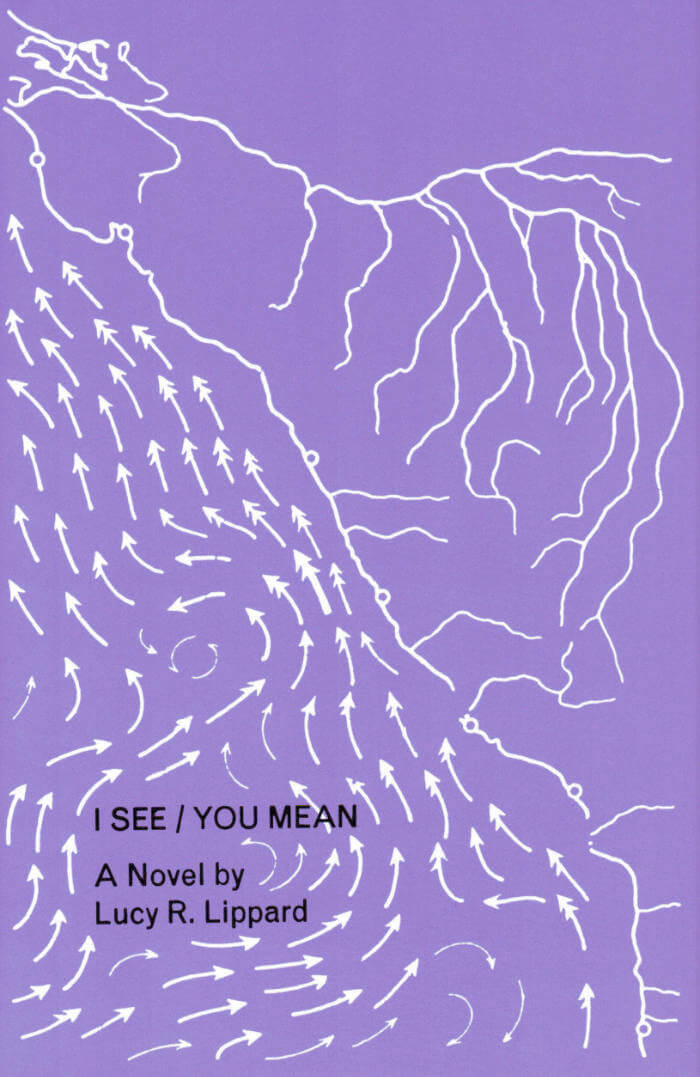
I See / You Mean
I See / You Mean is an experimental novel about mirrors, maps, relationships, the ocean, elusive success, and possible happiness. Through a collage of verbal photographs, overheard dialogue, sexual encounters, found material, and self identification devices (astrology, the I Ching, palmistry, Tarot), it charts from past to future the changing currents between two women and two men: a writer, a model/stockbroker/maybe dictator, a photographer, and an actor. A lot happens between the lines. Art critic Lucy Lippard wrote this novel in 1970 and became a feminist in the process: “I started writing and realized I was ashamed to be a woman. Then I had to find out why. Then I got very angry. The fragmented visual form came out of contemporary art and the conflicting emotions of 1960s political confrontation; they suggested a new way to put things back together—an open-ended, female way that didn’t pretend conclusions.”
Lucy R. Lippard is a writer, activist, and curator. She is the author of twenty-five books on contemporary art and cultural criticism and has curated some fifty exhibitions in the United States, Europe, and Latin America.
Afterword by Susana Torre
Edited by Jeff Khonsary

Fieldnotes - Issue nr. 2
A quarterly print journal publishing new writing and artworks with a focus on practices that work between disciplines and against type. There is always a third thing between two things that are known; we are interested in whatever there is between translations/transitions, things-in-progress, converging genres, methods of excavation and formal innovation. The purpose of the journal is to provide a test site for ideas and research; a space for experimental modes and new prototypes.
The second issue of Fieldnotes contains new work by:
Apichatpong Weerasethakul
Steve Dutton
Liesl Ujvary
Akio Yuguchi
Evan Lavender-Smith
Dodie Bellamy
Paul Maheke & Giles Bailey
Yan Jun
Emily Charlton
Ed Atkins
Sam Buchan-Watts
Elizabeth Price
Mary Mussman
Carolyn Ferrucci
Hanne Lippard
Charlie Godet Thomas
Hannah Regel
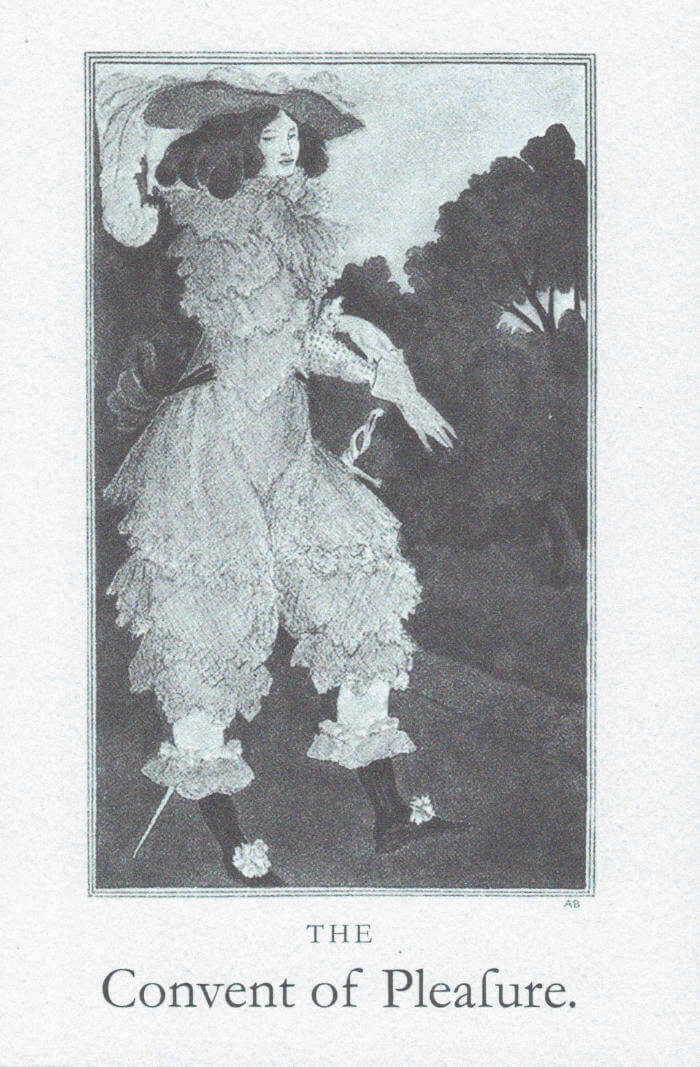
The Convent of Pleasure
The Convent of Pleasure is a play written by Margaret Cavendish in 1668. The play is a comedy about noblewomen who choose to retreat to a convent to create their own community in order to avoid the constraints and pains of marriage and men. Lady Happy, the main protagonist, ponders the question of a radical alternative to marriage: “But why may not I love a woman with the same affection I could a man?” This book is a close reproduction of the first printed edition of the play, which was supervised and edited by hand by Cavendish.
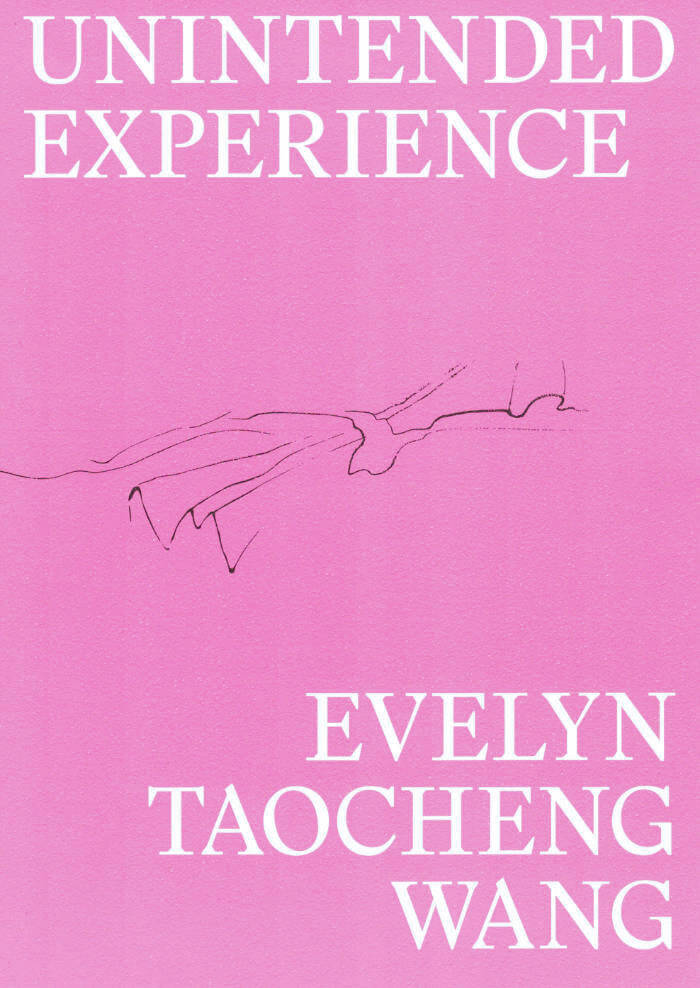
Unintended Experience. A job in Amsterdam
A new version of After 8 Books' first publication and bestseller: Evelyn’s adventures as a transgender masseuse in Amsterdam, back when she was a young artist, supporting herself by working in a massage salon. The texts are witty, sharp and thoughtful, reflecting a very specific community of friends and coworkers and its counterpart, the male clientele. The drawings illustrating those texts are dreamlike watercolors, perfect companions to Unintended Experience’s diaristic journey.
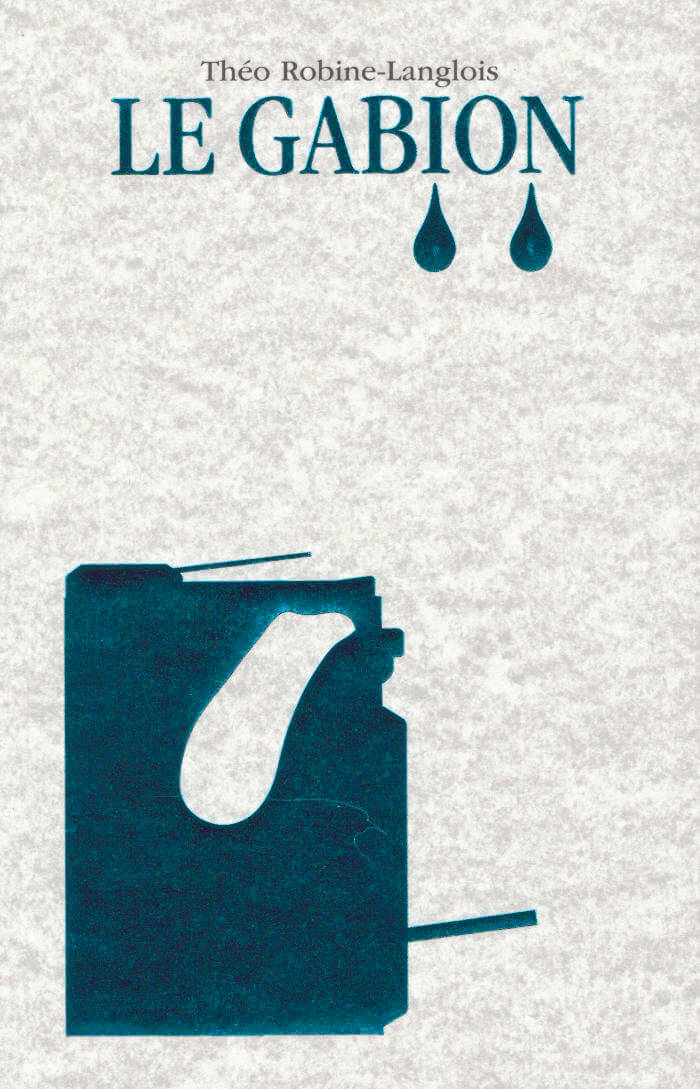
Le Gabion
Au départ, une simple anecdote: un gabion de chasse typique des marais normands se détache de son ancrage pour dériver dans l’Océan Atlantique, avec des chasseurs incapables de nager à son bord. Théo Robine-Langlois transpose cette histoire à une échelle interstellaire: le Gabion, vaisseau spatial chasseur d’astéroïdes conçu pour être attaché à la Terre, dérive dans l’espace. À la suite d’Anton, on traverse les différentes communautés qui peuplent le bâtiment, monde en soi où se côtoient et s’affrontent des mœurs, des modèles de société, et surtout des formes de langage. Anton, lui, tente d’échapper à celui qui prétend régir le vaisseau, en récoltant des photocopies éparpillées dans ses méandres, jusqu’à son mystérieux cœur...
Empruntant au roman d’apprentissage autant qu’à la science-fiction, Le Gabion est aussi une chanson de geste: une odyssée symbolique où la langue et la figure de l’auteur sont traités de manière expérimentale, comme faisant partie du récit lui-même. Les langues que parlent les personnages contaminent le livre, qui se construit comme un montage où poésie, philosophie, histoire littéraire, hip hop et échanges SMS se rejoignent. En parcourant le Gabion, les lecteur.trice.s rencontrent différents rapports au langage, qui se concrétisent à la fin du livre par l’élection d’un maire de banlieue parisienne.
Le Gabion poursuit le travail entamé par Théo Robine-Langlois dans son premier livre, [...], où le subterfuge typographique des points de suspension entre crochets signifiait à la fois l’existence de trous dans la langue, d’échappatoires dans l’imaginaire, et de nuages dans le ciel. Dans Le Gabion, on peut se cacher dans un paragraphe, lire entre les lignes d’un manuel de photocopieuse, se battre avec des missiles-poèmes, rencontrer des enfants sanguinaires et des sororités féministes. On traverse également plusieurs siècles de poésie française, des troubadours à Henri Chopin ou Hélène Bessette.
Texte en Français